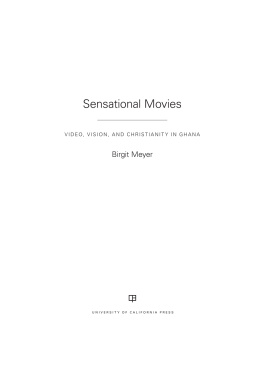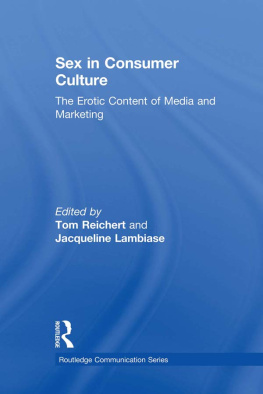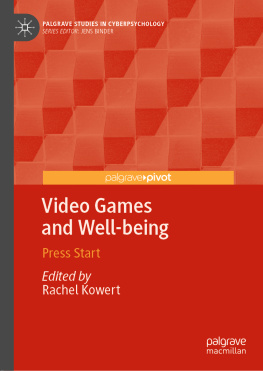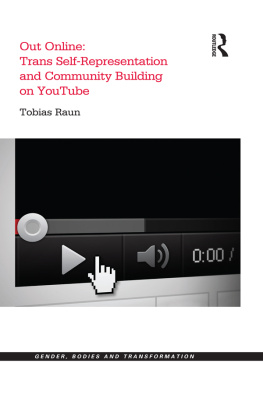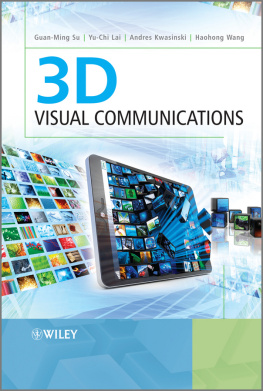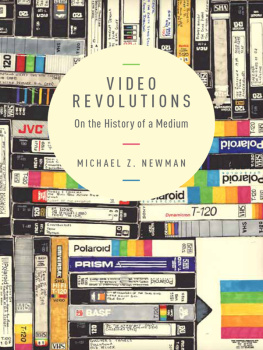ROUTLEDGE LIBRARY EDITIONS: TELEVISION
Volume 15
VIDEOLOGY AND UTOPIA
VIDEOLOGY AND UTOPIA
Explorations in a new medium
ALFRED WILLENER, GUY MILLIARD AND ALEX GANTY
Translated from the French and Edited by
DIANA BURFIELD
First published in 1976
This edition first published in 2013
by Routledge
2 Park Square, Milton Park, Abingdon, Oxon, OX14 4RN
Simultaneously published in the USA and Canada
by Routledge
711 Third Avenue, New York, NY 10017
Routledge is an imprint of the Taylor & Francis Group, an informa business
1976 Diana Burfield, translation
All rights reserved. No part of this book may be reprinted or reproduced or utilised in any form or by any electronic, mechanical, or other means, now known or hereafter invented, including photocopying and recording, or in any information storage or retrieval system, without permission in writing from the publishers.
Trademark notice: Product or corporate names may be trademarks or registered trademarks, and are used only for identification and explanation without intent to infringe.
British Library Cataloguing in Publication Data
A catalogue record for this book is available from the British Library
ISBN: 978-0-415-82199-5 (Set)
eISBN: 978-0-203-51517-4 (Set)
ISBN: 978-0-415-84009-5 (Volume 15)
eISBN: 978-0-203-76885-3 (Volume 15)
Publisher's Note
The publisher has gone to great lengths to ensure the quality of this reprint but points out that some imperfections in the original copies may be apparent.
Disclaimer
The publisher has made every effort to trace copyright holders and would welcome correspondence from those they have been unable to trace.
VIDEOLOGY AND UTOPIA
Explorations in a new medium
ALFRED WILLENER
GUY MILLIARD
ALEX GANTY
Translated from the French and Edited by Diana Burfield
ROUTLLEDGE DIRECT EDITIONS
ROUTLLEDGE & KEGAN PAUL
London, Henley and Boston
First published in 1976
by Routledge & Kegan Paul Ltd
39 Store Street,
London WC1E 7DD,
Broadway House,
Newtown Road,
Henley-on-Thames,
Oxon RG9 1EN and
9 Park Street,
Boston, Mass. 02108, USA
Manuscript typed by Gaye Hardiman
Printed and bound in Great Britain
by Unwin Brothers Limited,
The Gresham Press, Old Woking, Surrey
A member of the Staples Printing Group
Tema-Editions, Paris, 1972
Translation Diana Burfield 1976
No part of this book may be reproduced in
any form without permission from the
publisher, except for the quotation of
brief passages in criticism
ISBN 0 7100 8435 8
CONTENTS
In limiting the meaning of the term utopia to that type of orientation which transcends reality and which at the same time breaks the bonds of the existing order, a distinction is set up between the utopian and the ideological states of mind.
Karl Mannheim, Ideology and Utopia, p. 173
Truth is not only attached to propositions and judgments, it is, in short, not only an attribute of thought, but of reality in process. Something is true if it is what it can be, fulfilling all its objective possibilities. In Hegel's language, it is then identical with its notion.
Herbert Marcuse, Reason and Revolution, p. 25
The research described in this book was carried out without special financial support in a university situation that certainly offers little encouragement to the spirit in which we work.
The book is first of all the outcome of the confluence of several currents. It is also the product of a small team. It would not be impossible to follow the usual convention and specify the contribution or the particular orientation of the individual authors, but this would be to falsify a praxis growing out of confrontation and fusion, by reconciling differences in a joint project that is itself in a perpetual process of development.
We cannot, of course, mention by name all those who have helped us in one way or another, but we wish to thank them anonymously for their contribution, particularly those videologist colleagues whom we interviewed.
Among the other people whose contribution was especially valuable, we should like to thank: Mmes Girard-Montet, Peter, Rossier; Miles Keller, Lanini, Meregaglia, Moukhtar, Pelet; MM. Baechler, Belhadjali, Berger, Croquelois, Fantoli, Favre, as well as our friends and colleagues Tripier and Stucky.
The following groups and organizations also helped in various ways to further our explorations: L'Atelier des Techniques de Communication (the ACT group); Le Cycle d'Orientation de Genve; Le Collge Elyse de Lausanne; Les Jeunesses Progressistes Vaudoises; the seminar Esthtique et Mass Media, Lausanne, 197071.
As before, Monic Gille helped to support our efforts with encouragement and perceptive comments while undertaking the tasks of deciphering and transcribing the material.
It may seem futile to embark on exploratory research in an age of such technical and scientific sophistication that cameras can be radio-controlled between earth and moon? and, though work on the moon is also an exploration, it has the justification of that vast distance, the very space that science is beginning to conquer.
Moreover, we are proposing to explore by means of, and around, the video taperecorder, which, after all, is only a gadget, a still imperfect instrument; and, worse still, our goal is the region of Utopia located in social reality and sought through the use of that instrument.
So a collapse into irrationality is imminent, and the solemn ritual question, Where can objective reality be found in all this? will soon be asked. Shall we, on that account, involve ourselves in prefactory remarks and defensive statements? In the end, the judgment is left to the reader, anyway.
It seems to us that the most serious question, one that we prefer to touch on lightly, almost playfully, is to decide whether the rationale of a study, the most positive facts (positive true, but also positive = hopeful), are not precisely those which remain least accessible to measuring instruments; those in the realm of virtual-ity,(1) of a reality that is no less real on the contrary because it is not yet established. It is a positive act to play with this sur-reality rather than to stay confined in the sub-reality that is ordinarily presented to us as the sole standard of reference. And the transition from sub- to sur-reality occurs only in action, that is to say during that process which enables it to happen even before it is possible to be certain of its outcome.
It is in this direction, after all, that the greatest objectivity can be achieved through the subjective experience of the enthusiast. Sociologists of the academic seriousness and even the patrician restraint of a Robert King Merton have for a long time been reminding their colleagues of the importance of the self-fulfilling prophecy: the more strongly one believes something will happen, the greater the chance of its actually happening. It is not because this author is thinking above all in terms of the functioning of a process, within the framework of organized forces that can be recognized in advance,(2) that his thesis is not applicable to processes of renewal and transformation. Utopia can become reality in the course of establishing itself, or at least of making itself temporarily believable.


